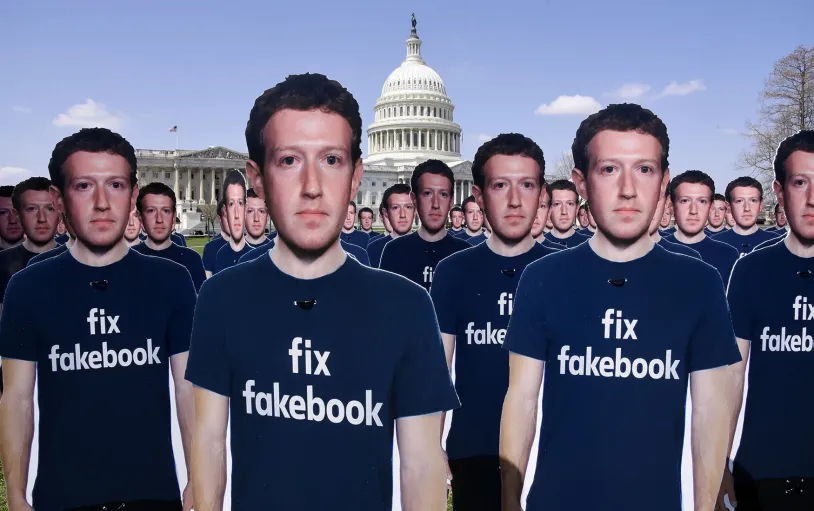Facebook CEO Mark Zuckerberg testified at the Capitol, where U.S. senators summoned him for a nearly five-hour hearing on how the social network protects its users’ data
U.S. lawmakers questioned Facebook co-founder and CEO Mark Zuckerberg in detail during a five-hour congressional hearing before the Legislative Committee and the Committee on Science, Commerce and Transportation.
Senator Kamala Harris asked why Facebook did not tell users that their personal data was in the possession of Cambridge Analytica immediately after it happened – back in 2013. Zuckerberg admitted that it was “undoubtedly a mistake.” Just last month, Facebook learned that Cambridge Analytica never deleted the data it had obtained illegally in 2013, though it assured the social network that it had done so. And on April 4, Facebook found out that 87 million people had been affected by the data leak – and immediately informed all users.
“It was a mistake, if we knew what we know now, we would have acted differently,” said Zuckerberg, who throughout the nearly five-hour hearing gave the impression of a confident but restrained man.
Zuckerberg acknowledged that Facebook is investigating whether users affected by Cambridge Analytica could also have been victims of the Kremlin-linked Internet Research Agency (also known as the “troll factory”), which Facebook blocked last week.
“We are now conducting an investigation and believe it is likely that such a connection exists,” Zuckerberg said. In March, the U.S. Federal Trade Commission announced it was investigating Facebook and U.K. authorities were investigating Cambridge Analytica. Facebook launched a wide-ranging review of its data practices and said it would review all apps that had accessed user data before Facebook tightened its protection requirements in 2014 in response to the Cambridge Analytica incident.
The billionaire did not forget to mention the high values of the social network, which he founded 14 years ago as a Harvard student. Although Zuckerberg believes that Facebook’s main goal is to unite people and promote constructive dialogue, he admitted that the company’s “idealistic” views and emphasis on rapid growth have compromised its security from unscrupulous users. Zuckerberg has repeatedly reiterated that he is willing to work with lawmakers to determine the “optimal” form of regulation for Facebook. “We don’t think regulation is a bad thing,” Zuckerberg said. – “I think the right question is what it should be, not whether it should be at all.
When Senator Maggie Hassan asked if Facebook had the financial motivation to protect users’ privacy, Zuckerberg found something to answer. “This episode has certainly hurt us…” – he admitted. Since mid-March, Facebook stock has fallen more than 10 percent. By the end of trading Tuesday, however, the social network’s securities were up 4.5 percent, to $164.05. It’s safe to assume that investors were pleased with the top executive’s testimony on the first day of the hearing.
Several senators asked whether the business of advertising online and acting to protect users’ privacy and data confidentiality were compatible. Zuckerberg stressed that “there will always be a free version of Facebook” for everyone. However, he noted that it is “reasonable” to consider the idea of a paid version, such as one with a monthly fee, in which users would be partially or fully protected from advertising and paid targeting.
Zuckerberg deftly responded to questions from senators about Facebook’s monopoly – a fact that could, in theory, justify imposing stricter regulation on the social network.
“You don’t think you are a monopoly?” – Senator Lindsey Graham asked. “I certainly don’t think so,” Zuckerberg replied, pointing to the highly competitive Internet market in China and studies showing that the average consumer uses about eight social networking and messenger apps.
Lawmakers also asked Zuckerberg about his company’s ability to counter negative content aimed, for example, at inciting hatred by radical political groups. Senator Booker raised the question of whether advertisers are able to discriminate against certain social groups through Facebook’s self-advertising system, such as excluding specific ethnic groups from viewing real estate ads, which is an illegal practice.
Zuckerberg will testify again today at the Capitol during a hearing before the House Energy and Commerce Committee.



